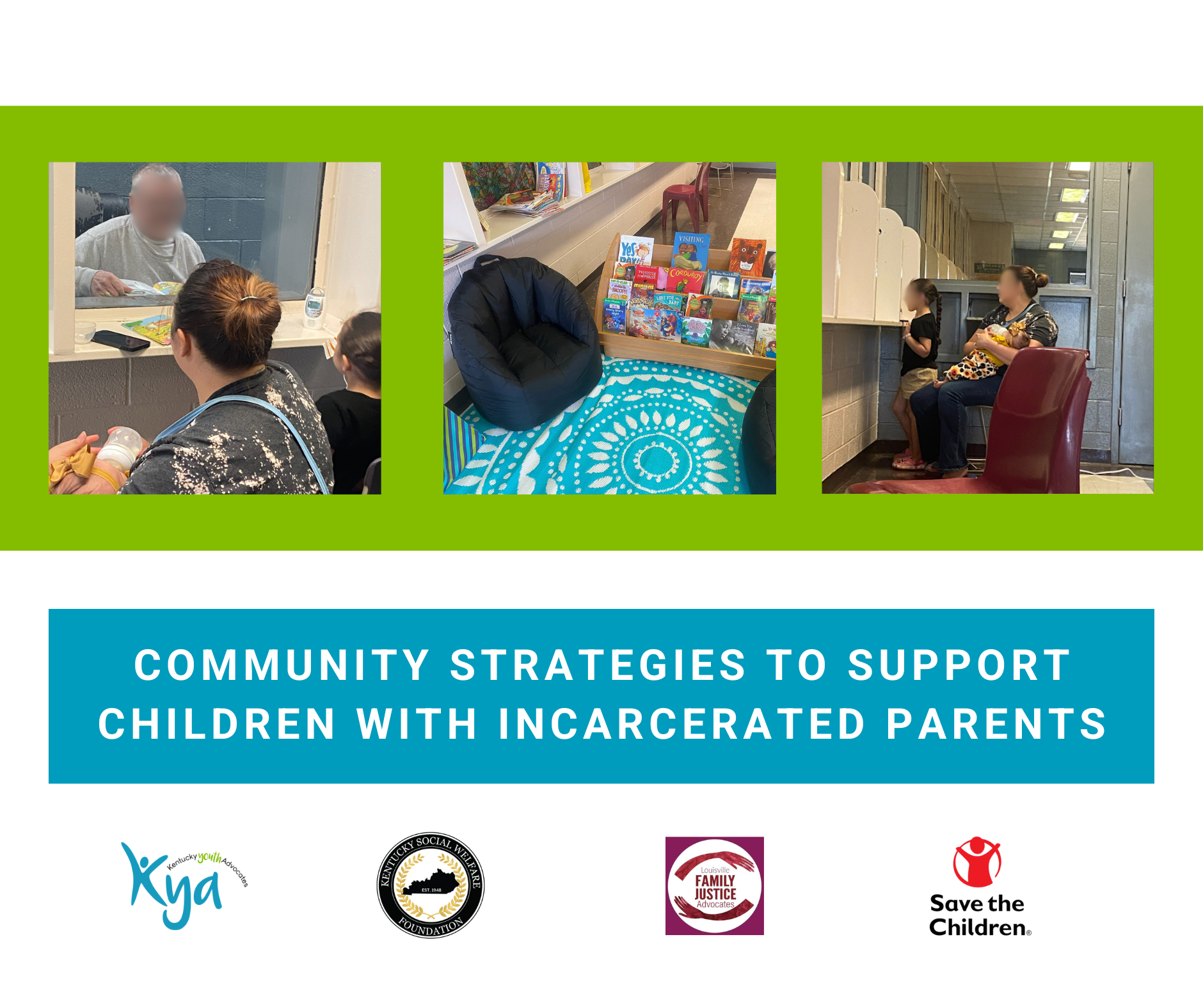Updated April 5, 2023

The 2023 Kentucky General Assembly has an increased focus on the juvenile justice system in light of recent concerns about safety and workforce capacity within the Department of Juvenile Justice facilities, and broader ongoing concerns about community violence. Three bills have been filed in the House and Senate in an effort to begin addressing some of these issues.
In the Senate, two bills that will strengthen oversight and improve workforce development and safety issues within DJJ facilities have been filed. Senate Bill 158, sponsored by Senator David Givens, would allow for a contract with a third party to conduct a full performance review of DJJ and allocate the funding for fiscal year 2022-23 with a preliminary report due in October. This would allow for a non-biased review of pre- and post-adjudication facilities and programs with workforce protections in place to ensure that interviews with employees will be kept confidential. SB 158 passed the Senate but did now receive a hearing in the House Appropriations & Revenue Committee.
Senate Bill 162 with the Senate committee substitute, sponsored by Senator Danny Carroll, is a comprehensive reform bill that passed the Senate and House and has been signed by the Governor. It will, among other things:
- Maintain a centralized data tracking system for the Department of Juvenile Justice
- Provide children in detention facilities access to privileged conversations with mental health professionals when in crisis
- Require training for staff on proper use of defensive equipment and provide that equipment which will be used with controlled access
- Establish a specially trained emergency response team within each juvenile detention center and youth development center and require monthly documented training
SB 162 will also allocate funding to support:
- A salary increase for youth workers in detention centers
- Hiring 146 additional youth workers
- Security upgrades to the detention center buildings
- A diversionary program to identify and provide treatment for juveniles with severe emotional disturbance or mental illness, and the immediate transfer of youth who meet this criteria to a secured treatment facility
- Developing a plan to transition back to the regional juvenile detention center model that safely segregates males and females and separates violent and non violent offenders
Representative Kevin Bratcher’s House Bill 3 has been voted out of the House and Senate and has been signed by the Governor. The measures includes the following components:
- Requires the Family Accountability Intervention Response (FAIR) Teams to take action on truancy cases within 90 days.
- Orders parental cooperation in cases where children fail a diversion agreement due to a lack of parental cooperation.
- Mandates that children taken into custody for a violent felony offense be detained for 48 hours before a detention hearing and examined by a qualified mental health professional.
- Unseals records for children convicted of violent felony offenses for 3 years.
- Allocates funding for the Jefferson County Youth Detention Center to be retrofitted to accommodate 40 beds, to renovate the Regional Jefferson Detention Facility in Lyndon, and to cover transportation and staffing costs.
HB 3 has seen some changes through the process, including Representative Kim Moser’s House committee substitute that addresses access to behavioral health screenings and services. With its passage by the Senate A&R Committee, Senator Danny Carroll championed the following additions to the measure as part of Senate committee substitute:
- Delaying the implementation of the 48-hour hold mandate for one year.
- Establishing the 48-hour hold mandate does not apply to children 10-years-old or younger.
- Allowing for community organizations to connect with a young person when they are detained.
- Before developing the diversion agreement to be shared with FAIR teams, Court Designated Workers will connect with the school district of the child to get background information about the family, education records, and any previous services they have received.
- Allowing the referral of a child’s case to the Cabinet for Health and Family Services to conduct an investigation of suspected dependency, neglect, or abuse after assessing the needs of the child.
While we are appreciative of the positive changes that have already been made to the bill, there are still a few recommendations we have that would have made the bill stronger:
- Allow Judges to maintain judicial discretion by removing the mandate to detain youth for 48 hours when charged with a violent felony offense.
- Add language that ensures youth are screened for developmental and intellectual disabilities at the earliest point of contact with the juvenile justice system and referred accordingly.
- While we’re glad to see a lowered timeframe from five to three years for sealing youth records, we still urge for the removal or significantly narrowing to the most severe offenses when it comes to the unsealing of court records, which can impact a youth’s ability to gain employment or attend higher education in the future.
- Kentucky Youth Advocates would also like to see the Blueprint for Kentucky’s Children long-standing priority to establish a minimum age for adjudication be included in the bill so that youth are held accountable in developmentally appropriate ways.
You can use the legislator lookup tool to reach out to your legislators in the House and Senate to ask that they continue making moves to improve the outcomes of youth in the juvenile justice system and to consider what is best for all of Kentucky’s youth.
Stay up-to-date on the progress of bills that are good for kids on our Bill Tracker.






Leave A Comment